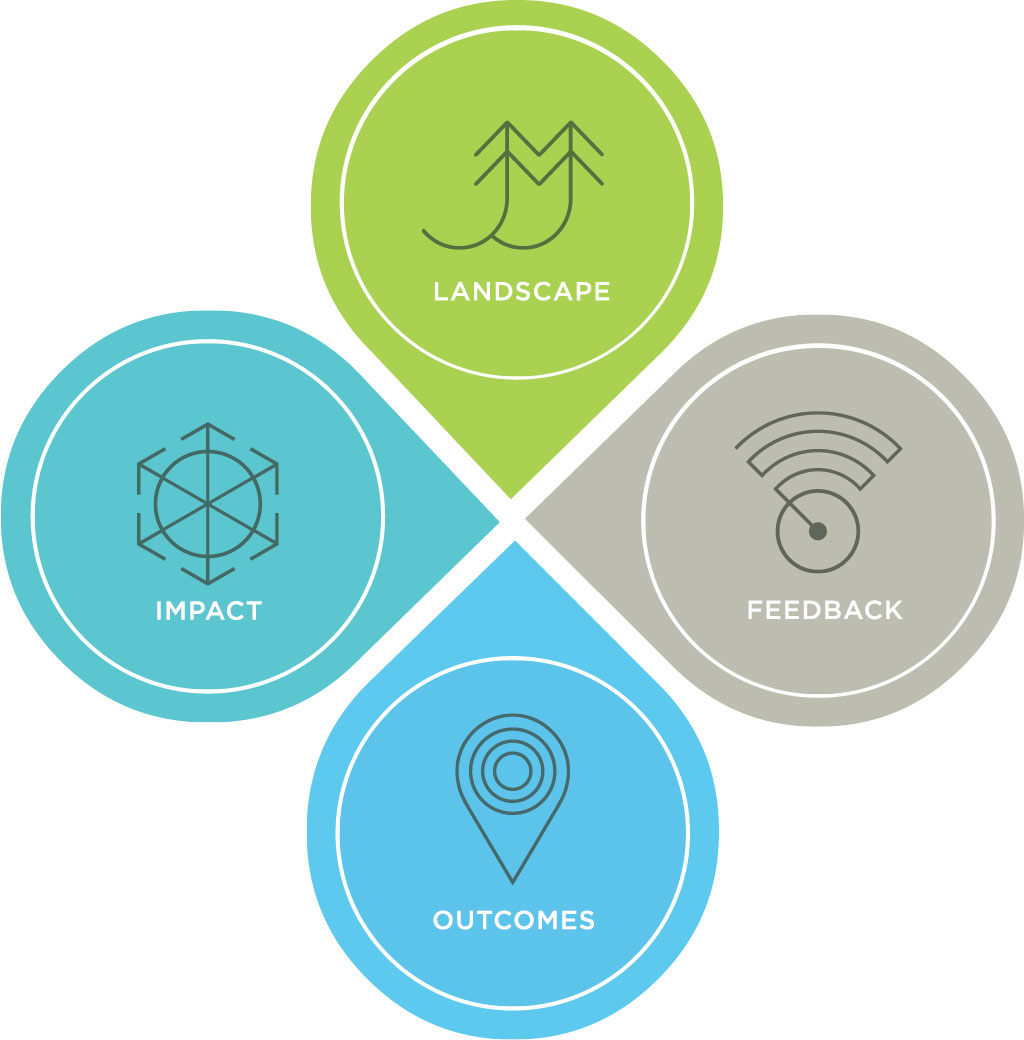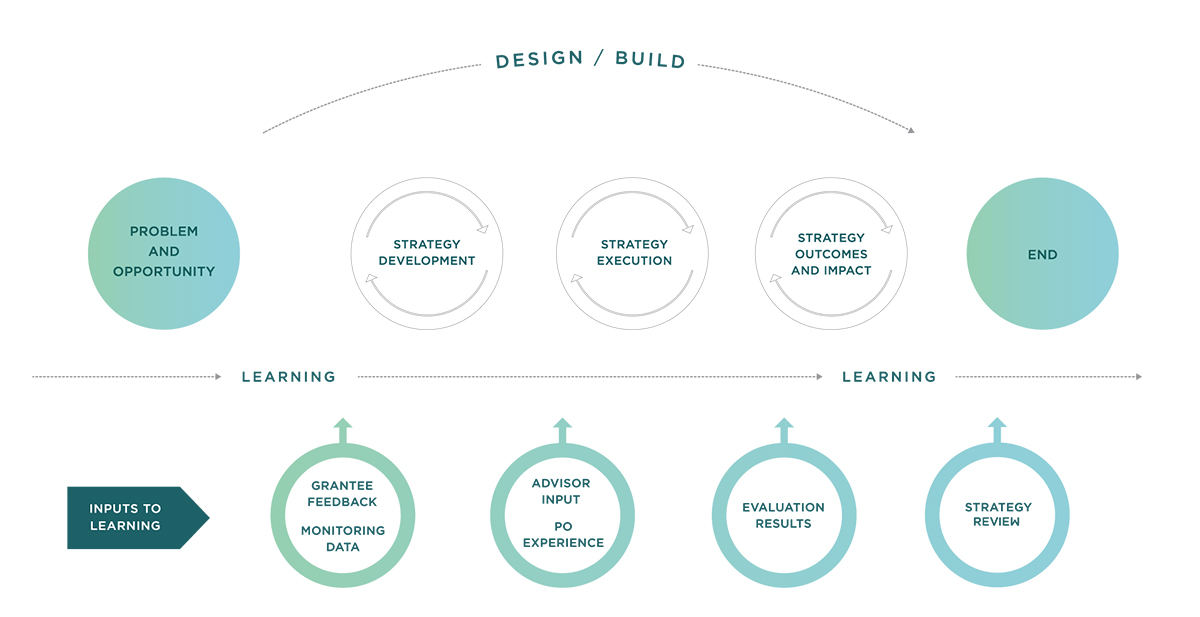Why We Evaluate
We evaluate for learning and to keep our strategies dynamic. At its simplest, evaluation is an ongoing process of information collection at a strategy level that helps us measure progress, learn, reflect, and make informed choices. We value evaluation that recognizes that diversity of thought, sharing knowledge, and including many voices are essential to get at larger truths that help us make informed, long-lasting change.
We believe that our programmatic choices will be most impactful and aligned with our values when we hold ourselves accountable with regular feedback from a range of perspectives—especially external perspectives. So we evaluate our strategies and strategic choices, recognizing that evaluation can broaden our awareness and challenge our assumptions.
Through a close working relationship with program teams, the Office of Evaluation provides information as a resource in support of a program’s decision-making for effective stewardship of the Foundation funds.
Our evaluation work is guided by our principles: be ambitious, yet realistic; be rigorous and apply logic while staying flexible; prioritize learning and be purpose-oriented; ensure inclusivity and diversity; and be ethical and respectful.
Our Approach
Our focus in evaluation is learning: about the landscape in which grantees are working; about the needs of the people in our grantees’ communities; about how we can be a better funder, partner, and supporter of grantees’ work; and about the impact of our grantees’ contributions.
While each area of work may be at a different stage of development, all programs are evaluated. Rather than evaluating individual grants, we focus our efforts on the portfolio and strategy as a whole. Our approach to evaluation focuses on the range of questions that program team leaders have as they make choices about how best to deploy Foundation resources in support of grantees. Questions depend on the strategy’s intended purpose, and include the four areas:
- Landscape: What is the landscape for my program area? How is it changing?
- Feedback: What are we doing well? Where can we improve?
- Outcomes: What progress is evident? With what consequences?
- Impact: How are we contributing to meaningful impact?

We seek to learn whether our strategy is producing significant results or meaningful contributions including assessing the extent to which our work is aligned with our values. We do this by creating dynamic, continuous learning opportunities to ensure we have the inputs we need to understand how best to shift our strategy to further achieve our goals around diversity, equity, inclusion, and impact.
We rely on a variety of sources for input including Board advisors, grantees, external experts, internal advisors, and evaluation and learning partners which we use to improve and hone our strategies and to bring in perspectives beyond our networks to challenge our assumptions. And we aim to be transparent about how we work, the decisions we make, and the lessons we learn along the way. We are committed to sharing the lessons from our evaluations to benefit the field as well as hold ourselves accountable.
How We Use Evaluations
Working along the arc of our Design/Build framework, evaluation helps us understand changing contexts, challenge our assumptions, assess our effectiveness, measure our contributions, learn from our efforts, and take advantage of emerging opportunities.
While we believe in working dynamically, we do not believe in iterating eternally. Evaluation serves as a continuous input into our work. Further, we use evaluations as part of our Strategy Reviews as a formal institutional moment with our Board to assess our Big Bets against our time-bound intended impacts and our Enduring Commitments, Field Support, and Awards and Special Projects against our expectations and specified outcomes.



